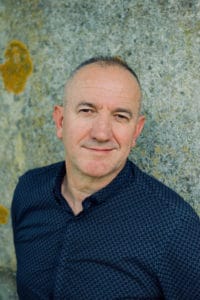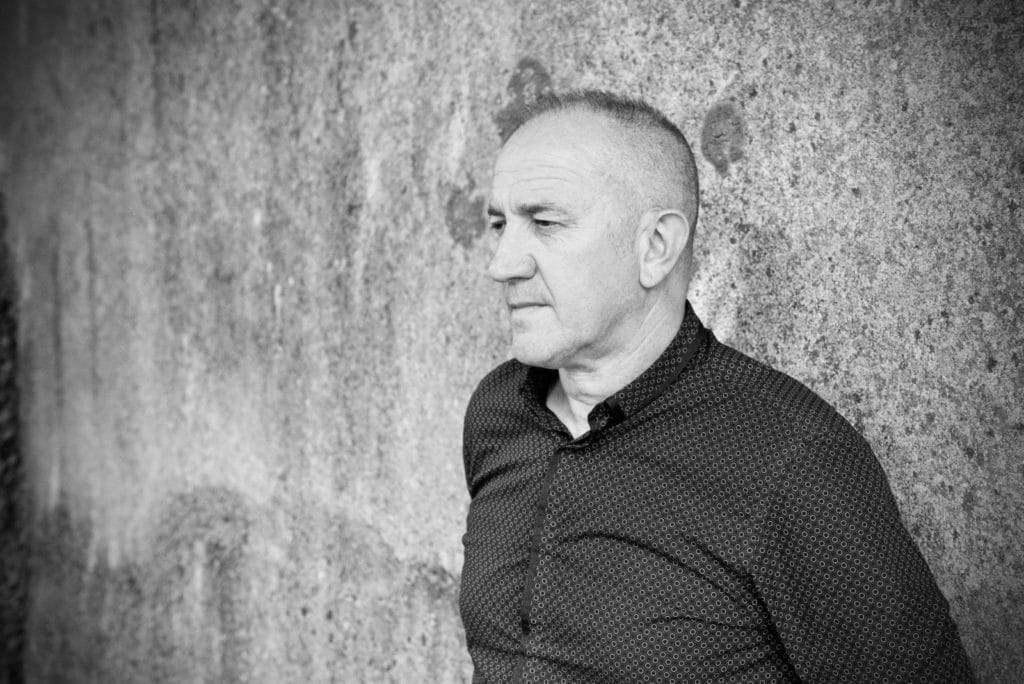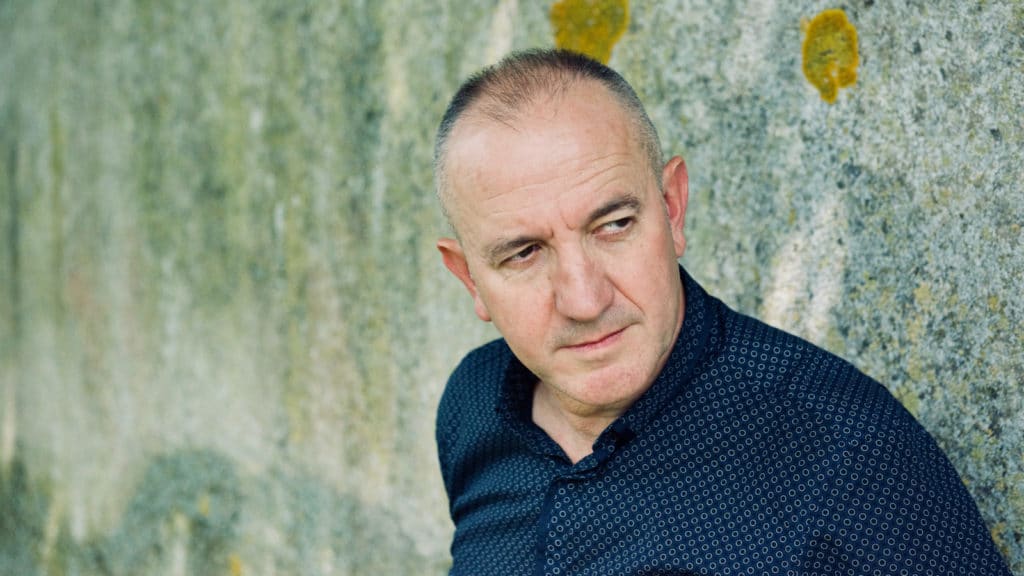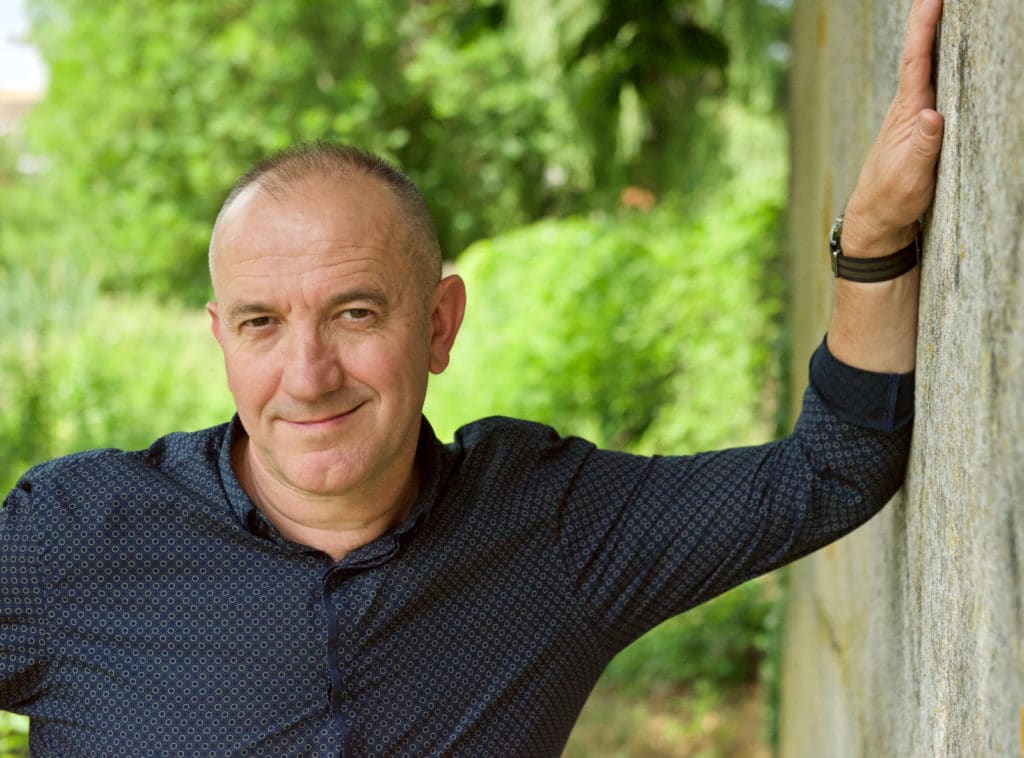Three black men wash up on a small island. This threatens to throw a spanner in the works of the residents and their economic plans. So everyone prefers to pretend nothing happened. Archipelago of the dog, Philippe Claudel's new novel, is a haunting book through which lightness sometimes peeks through. The French bestselling author worries: 'Once, nuclear weapons were the greatest danger, but if you ask me, human behaviour is the most dangerous right now.'
Border perils
When he was a little boy, Philippe Claudel (56) didn't understand. Because of the First and Second World Wars, his grandparents and parents hated all Germans in the neighbourhood. But when they crossed the border at the weekend - from his hometown Dombasle-sur-Meurthe in Lorraine you can reach Alsace in no time - he heard them sigh how beautiful and clean it was there, and how friendly and polite the people were. 'Those were the same adults who just a week earlier were shouting that those barbaric Germans were their enemies. For me as a child, that was almost schizophrenic.'

Claudel realised early on that neighbours could become enemies overnight, and how complex and fragile things like nationality, belonging and brotherhood are. These are also themes in his new novel Archipelago of the dog, in which Claudel beautifully depicted his concerns about the crumbling togetherness between people, peoples and countries. The story is not only reminiscent of his bestselling Grey souls but also to his chilling but magisterial novel Brodeck's report, in which a community turns on an innocent.
At Archipelago of the dog three dark-skinned men are found lifeless on the beach one morning. The Mayor, the Doctor, the Pastor and some villagers want to keep the case under wraps; negative reports only cause unrest among the population and also jeopardise a fervently desired Thermae project - the economic stakes for the island are high. Only the Educator, a man of truth, cannot resign himself to it and sets out to investigate the men's origins and identities. The consequences of his sleuthing are far-reaching.
The rise of selfishness
Claudel recalls a story about a refugee family that had fled to France because of war. 'I wondered how it was possible to build a new existence when everything you know has been destroyed. I started working on this book six years ago because a turning point was beginning to emerge. More and more people were standing up who wanted to build a wall around the peaceful, rich country we live in, who wanted to close borders, to not allow other people into our country. Ridiculous, that is not possible at all in today's world. We must help our fellow human beings, especially refugees who have lost everything as a result of war.'
'The biggest problem of our current times is the rise of selfishness. I worry about developments in Europe, the disappearing cohesion. It seems almost impossible to preserve the principles of a society. A society means: living together. I think most people actually prefer to live alone, or with people who have exactly the same taste, religion and the same amount of money. In France, in the last election, 33 per cent voted for Marine le Pen's extremist party. And if you see what happens in northern Italy, Catalonia, Hungary or Slovenia...'

If everyone wants to live on their own island, all social cohesion eventually disappears.
'This is also why I wanted to use the metaphor of an island for this novel: it is a dream image of the contemporary population. We want to maintain our prosperous, privileged existence and refuse to share a little of the happiness with others. Nuclear weapons used to pose the greatest danger, but if you ask me, human behaviour poses the greatest danger right now.'
Why have we become so much more selfish?
'The main reason is that there are currently 7.6 billion of us on earth. Fifty years ago, it was only half that. In 1930, the counter stood at 2 billion. At the beginning of the era, it was even only 200 million. In fifty years, as many people have been added as in the first two thousand years combined. Within one or two centuries, we will be at 15 billion. That poses a huge agricultural and ecological problem. The big issue is how to live with so many people in harmony and with equality and justice. The way we are going, I doubt we will be able to solve these problems in time. I fear a catastrophe is about to unfold.'

Do readers pick up on your warning?
'I hope so. The novel is already out in France and I just finished a tour of 40 events. I spoke to people who had become more aware of the urgency of the problem by reading the novel than by reading the newspaper. Perhaps this is because of the constant bombardment of news on the internet, television, in newspapers, social media. People are over-informed, but the effect is nil.'
Disrupt
'Literature has the power to touch us deeply, because while reading a book you step out of the speed of everyday life for a very short time and take space for reflection. After all, to reflect you need time and space, and silence. Therein also lies the value of art. Not only literature, but also the other forms of art offer the possibility to reflect on politics and economics, but especially on ourselves and the complexity of being human in the present time.'
This also gives artists and writers a great responsibility.
'When I started 20 years ago, I didn't think of it that way, but nowadays I indeed feel a strong need to explore social structures. I have a mission, however modest, to illuminate something bigger for my reader. This is not an easy task in today's times, because like in so many countries, French readers want mainly 'light' literature. In the bookshop, people ask for easily digestible books because they want to escape from their own lives and problems. There is nothing wrong with reading a novel that makes you think about nothing for a few hours. But in my opinion, literature has another function: to disrupt and make you think.'
The resistance to the Educator's search makes it clear that people would rather not do that.
'That's right. Remember the stranger in Brodeck's report makes an exhibition of portraits he has painted of the villagers? Suddenly, another shows them their true faces. What they see is ugly. They cannot bear to see themselves, look deep into their souls. They destroy both the portraits and the painter. Many people prefer to remain ignorant or blind to the truth. I sometimes hear readers say they enjoyed the book but also found the atmosphere dark. Some would prefer my books to be more 'pink' in colour; they find confronting evil difficult.'

Light and humour
Yet there is also lightness in this novel.
'I agree! Tragedy can go perfectly well with humour. Archipelago of the dog contains, I think, really funny moments and scenes. I really like Italian comedy. Of course, between 1958 and 1973, Italian writers and directors like Dino Risi, Ettore Scola and Fellini knew how to make a great combination of tragedy, comedy and social movement. I pursued that balance myself.'
Although it is about today's world, your novel is more like a fable.
'Indeed, I did not want to write a realistic book, but a dark fairy tale with archetypal characters who stand for something: science, religion, authority, and so on. The island, the sea and the bodies of those poor men evoke the Odyssey of Homer and The divine comedy of Dante in memory; works that lay at the foundation of our civilisation. Europe is the result of a mixture of all kinds of civilisations, such as those of the ancient Greeks, Romans and Egyptians.'
'You can read my book as an exciting story about a topical issue. But I also think it is important that my novel reflects our civilisation and society on another level. What I especially hope is that it offers an opening for a different way of looking at contemporary problems. Without too many words, I wanted to show how important this shared culture is. And that our Mare Nostrum has become a cemetery.'

